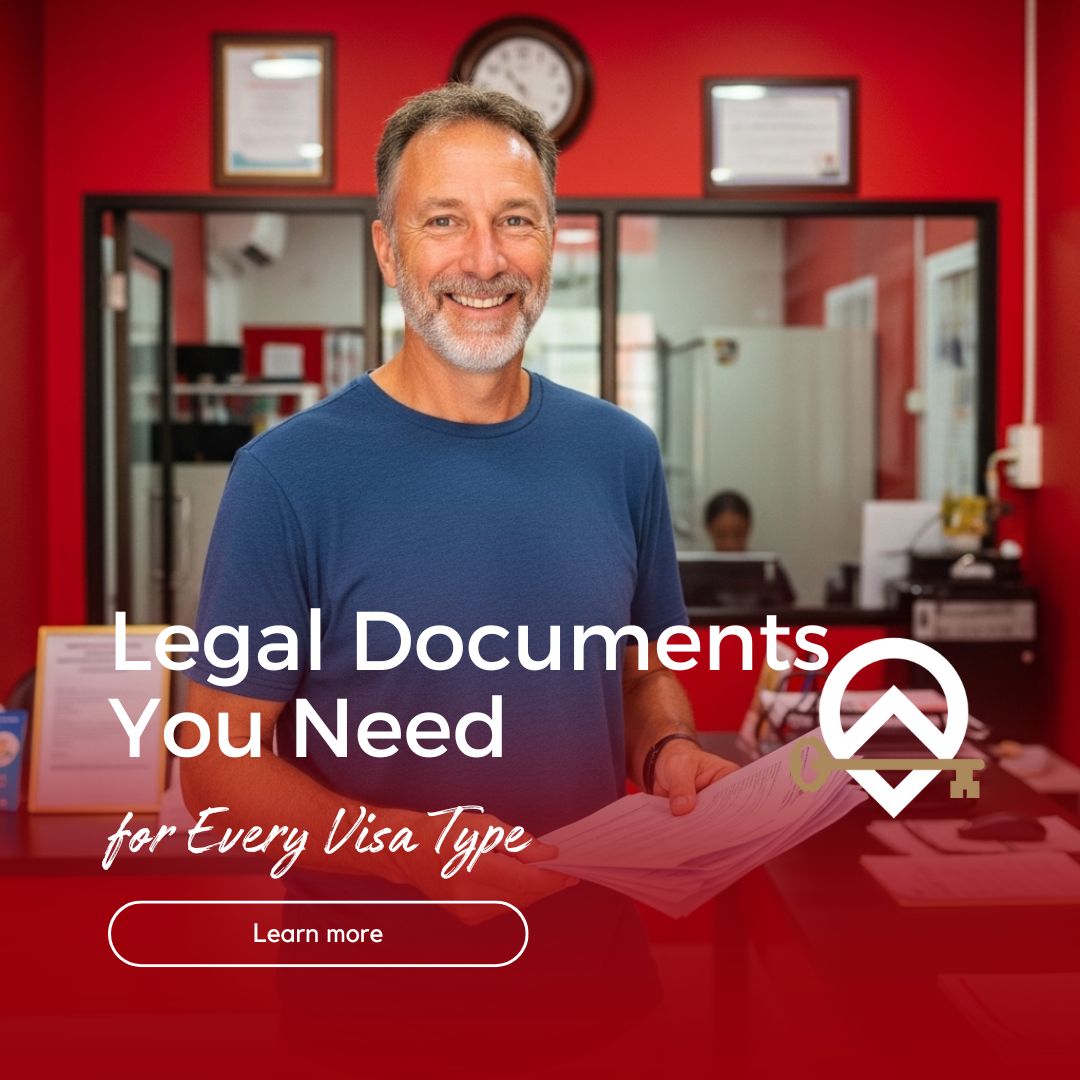Staying longer than permitted in Thailand can lead to serious consequences that many travelers underestimate. Whether you're a tourist who lost track of time or someone considering extending their stay, understanding Thailand's overstay regulations is crucial for avoiding hefty fines, detention, and potential entry bans.
This comprehensive guide covers everything you need to know about Thailand's overstay policies, including current fine structures, legal risks, and the ban calendar that determines how long you'll be prohibited from returning.
Table of Contents
- What Constitutes an Overstay in Thailand
- Current Fine Structure and Pricing
- Legal Risks and Consequences
- Ban Calendar and Duration
- How to Avoid Overstaying
- What to Do If You're Already Overstaying
What Constitutes an Overstay in Thailand
An overstay occurs when you remain in Thailand beyond the date stamped in your passport by immigration officers. This "permitted to stay until" date is your legal deadline, regardless of your visa validity period. Many travelers get confused because visa validity and permitted stay duration are two different things.
For example, you might have a 60-day tourist visa that's valid for 90 days from issue date. However, if immigration stamps you in for only 30 days, you must leave or extend before that 30-day period expires, not the full 60 days.
Common overstay scenarios include:
- Misreading the immigration stamp date
- Assuming visa validity equals permitted stay duration
- Missing flight connections due to delays
- Medical emergencies preventing departure
- Intentional overstaying due to financial constraints
Thailand operates on a "grace period" system where overstays of less than 24 hours may be forgiven, but this isn't guaranteed and shouldn't be relied upon. The safest approach is to depart before your stamped date or obtain a proper extension.
Current Fine Structure and Pricing
Thailand's overstay fines follow a progressive structure that becomes increasingly expensive the longer you stay illegally. As of 2025, the standard fine rate is 500 Thai Baht per day of overstay, with specific caps and conditions.
Here's the current fine breakdown:
Daily Fine Rate: 500 THB per day
Maximum Fine (Airport Departure): 20,000 THB (equivalent to 40 days)
Maximum Fine (Land Border/Arrested): No cap - full daily rate applies
The key difference lies in how you're caught. If you voluntarily present yourself at an airport for departure, your fine is capped at 20,000 baht regardless of overstay length. However, if you're arrested by police or try to exit via land border, you'll pay the full daily rate with no maximum limit.
For example, a 60-day overstay would cost:
- Airport departure: 20,000 THB (capped amount)
- Police arrest/land border: 30,000 THB (500 × 60 days)
Payment must be made in Thai Baht, and credit cards are generally not accepted for overstay fines. Some airports may accept major foreign currencies, but exchange rates are typically unfavorable.
Legal Risks and Consequences
Beyond financial penalties, overstaying in Thailand carries serious legal risks that can impact your future travel plans and personal safety. The Thai government has become increasingly strict about immigration violations, treating overstays as criminal offenses rather than simple administrative matters.
Immediate legal consequences include:
Detention and Imprisonment: Overstayers can be held in immigration detention centers (IDCs) while awaiting deportation. These facilities often have poor conditions, limited amenities, and uncertain processing times. In severe cases, criminal charges may be filed, leading to actual imprisonment.
Deportation Process: Once caught, you'll be processed for deportation at your own expense. This includes detention costs, flight tickets, and administrative fees. The process can take weeks or months, during which you'll remain in custody.
Criminal Record: Overstays create a permanent record in Thailand's immigration database. This information may be shared with other countries, potentially affecting visa applications elsewhere.
Blacklisting: Beyond official bans, immigration officers maintain informal blacklists that can result in enhanced scrutiny or denied entry even after ban periods expire.
The risk level escalates significantly if you're involved in other activities while overstaying, such as working illegally or engaging in any form of business. These compound violations can result in much harsher penalties and longer-term consequences.
Ban Calendar and Duration
Thailand's ban system is designed to deter repeat overstays through progressively longer entry prohibitions. The ban duration depends on your overstay length and how you're apprehended, following a structured calendar that immigration officers strictly enforce.
Current Ban Structure:
90 days to 1 year overstay: 1-year entry ban
1 year to 3 years overstay: 3-year entry ban
3 years to 5 years overstay: 5-year entry ban
Over 5 years overstay: 10-year entry ban
Important exceptions and considerations:
Airport Departure Exception: If you voluntarily depart through an airport (not arrested), overstays under 90 days don't trigger an entry ban. You'll still pay the fine, but can return immediately.
Police Arrest/Land Border: Any overstay discovered through police action or land border crossings results in immediate ban implementation, regardless of duration.
Multiple Overstays: Previous overstay history significantly impacts new violations. Immigration officers can impose harsher penalties for repeat offenders, even if individual overstays seem minor.
The ban period begins from your departure date, not when the overstay started. During this time, you cannot enter Thailand for any purpose, including tourism, business, or family visits. Attempting to circumvent bans through fake documents or identity changes can result in permanent exclusion.
How to Avoid Overstaying
Preventing overstays requires careful planning and constant awareness of your legal status in Thailand. Many violations occur due to simple oversights that could easily be avoided with proper preparation.
Essential Prevention Strategies:
Calendar Management: Immediately photograph your passport stamp and set multiple phone reminders for your departure date. Consider setting alerts for 7, 3, and 1 day before expiration to allow for planning.
Extension Planning: If you need to stay longer, apply for extensions well before your current permission expires. Tourist visas can typically be extended for 30 days at immigration offices for 1,900 THB. Don't wait until the last minute, as processing can take time.
Flight Booking Strategy: Book flights at least 2-3 days before your stamp expires to account for potential delays, cancellations, or airport issues. Last-minute bookings are expensive and may not be available.
Border Run Considerations: If planning border runs to reset your stay, research current policies carefully. Some borders have specific requirements or may refuse entry for frequent crossers.
Emergency Preparation: Keep emergency funds available for unexpected extensions or early departure. Medical emergencies, family issues, or natural disasters can disrupt travel plans.
Documentation: Maintain copies of all immigration documents, including entry stamps and extension receipts. These prove your legal status if questioned by authorities.
What to Do If You're Already Overstaying
If you've already overstayed, immediate action is crucial to minimize consequences and avoid escalating the situation. While the violation has already occurred, how you handle it significantly impacts the severity of penalties.
Immediate Steps:
Assess Your Situation: Calculate your exact overstay period and determine the potential fine amount. Consider whether airport departure or extension might be possible based on your circumstances.
Airport Departure Strategy: If possible, proceed directly to an airport for departure. This caps your fine at 20,000 THB and avoids entry bans for overstays under 90 days. Don't attempt to leave via land borders, as this eliminates the cap benefit.
Extension Possibility: In rare cases, immigration officers may still grant extensions even during short overstays, particularly for medical emergencies or other compelling circumstances. This typically requires documentation and may not always be successful.
Legal Assistance: For complex situations or long overstays, consider consulting with immigration lawyers who specialize in Thai law. They can provide specific guidance and may be able to negotiate better outcomes.
Financial Preparation: Ensure you have sufficient Thai Baht for fine payment, as other payment methods are generally not accepted. ATMs are available at airports, but plan ahead for potential limits.
Documentation: Gather any supporting documents that explain your overstay (medical records, flight cancellation notices, etc.). While these may not eliminate penalties, they could influence officer discretion.
Remember that voluntary compliance generally results in better treatment than being caught through enforcement actions. Immigration officers may show more leniency toward travelers who proactively address their violations rather than those who try to hide or avoid responsibility.





